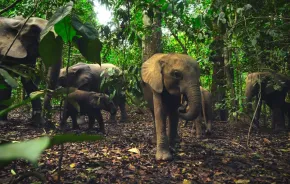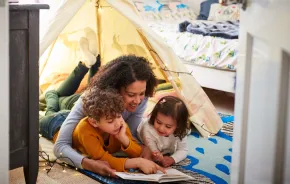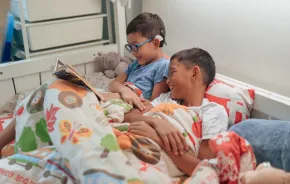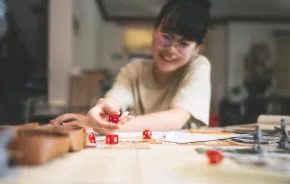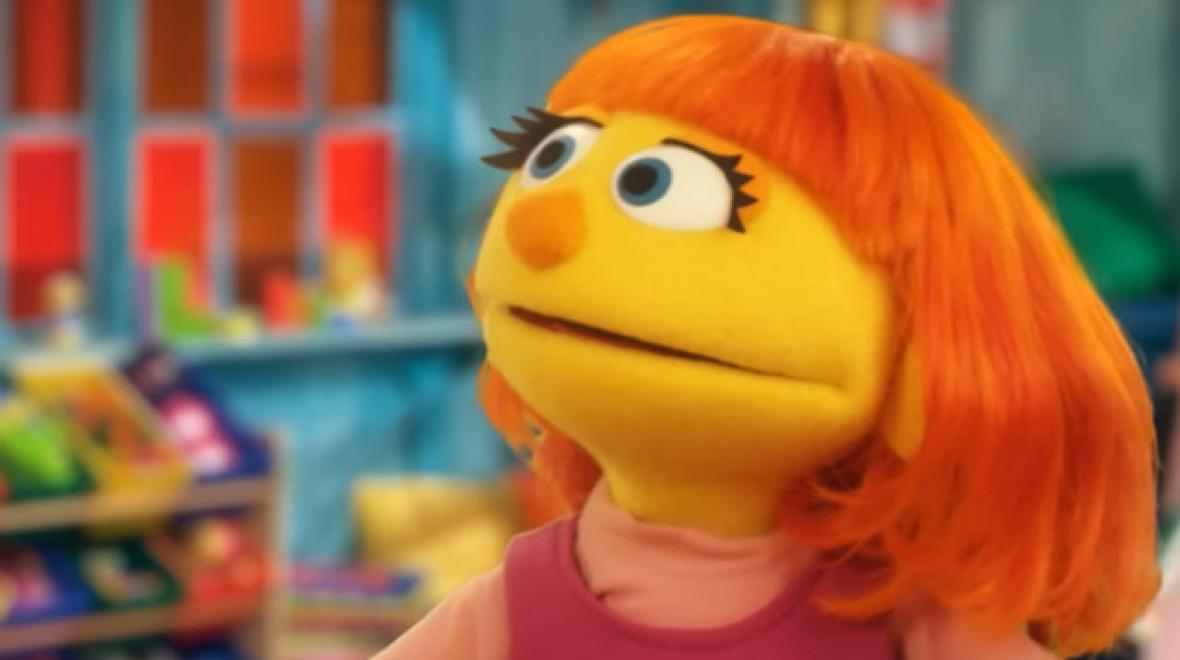
This week we talked with Sherrie Westin, the executive vice president of global social impact at Sesame Workshop and one of the people behind Julia, Sesame Street's first new TV character in 10 years. Four-year-old Julia has autism and, along with Big Bird, Abby, Oscar and Elmo, will help parents and children better understand her disability. Julia was first introduced as a storybook character in 2015 and will make her HBO and PBS debut on April 10.
Where did this idea come from? How did it start?
Given the sheer number of children diagnosed on the autism spectrum, we felt like this was an issue we needed to address. We spent a lot of time studying. We put together advisory groups; we did a lot of research. We felt like we could create a character who would give children with autism someone they could relate to.
After we launched our "Sesame Street and Autism: See Amazing in All Children" initiative in 2015, we received an outpouring of comments calling for Julia to be brought to life on television.
Tell us a little bit more about the process of actually developing Julia's character, her mannerisms and speech?
We learned that a lot of people didn't think girls could have autism, so that's one of the reasons we deliberately chose to make Julia a girl. There's a saying in the autism community that I've learned since working on this: If you've seen one child with autism, you've seen one child with autism. We are very much aware that there wouldn't be just a typical character.
We looked at the midrange of the spectrum. What could be some characteristics that others could relate to and identify with in terms of autism? Loud noises bother Julia. She doesn't always make eye contact. Elmo explains that just because she doesn't look you in the eye doesn't mean she doesn't want to be your friend. When Big Bird tries to introduce himself to Julia in the first episode, Julia doesn't really respond, and Abby explains, 'My friend Julia has autism.'
The opportunity for us to model understanding, inclusion and acceptance by also explaining some of those different behaviors is tremendously powerful.
What do you hope a child will get out of this? A parent?
We're very direct. Abby says to Big Bird, 'Julia has autism.' I can't tell you how many adults I've met over the last few years who didn't know whether or not they should say that. They don't know how to ask another parent, "Does your child have autism?" If we can destigmatize that, I think that is incredibly beneficial to adults and children alike.
One of my favorite stories is that when we first launched the character, a mother wrote and said she had actually used our storybook with Julia to help explain to her daughter that she had autism. We describe Julia as 'amazing.' At the end, the little girl asked her mom, 'I'm amazing too, right?' We're helping children feel less alone and giving parents tools. It is quite rewarding.
The puppeteer who plays Julia has a son with autism. She brings a lot of her own life experience and sensitivity to bear as she puppeteers Julia. That was a huge factor in casting her. She's said to us that she so wishes there had been a character like this when her children were younger.
This interview has been edited and condensed for clarity. Sesame Workshop is also a donor to Common Sense. Click here to read the news department's ethics statement.








